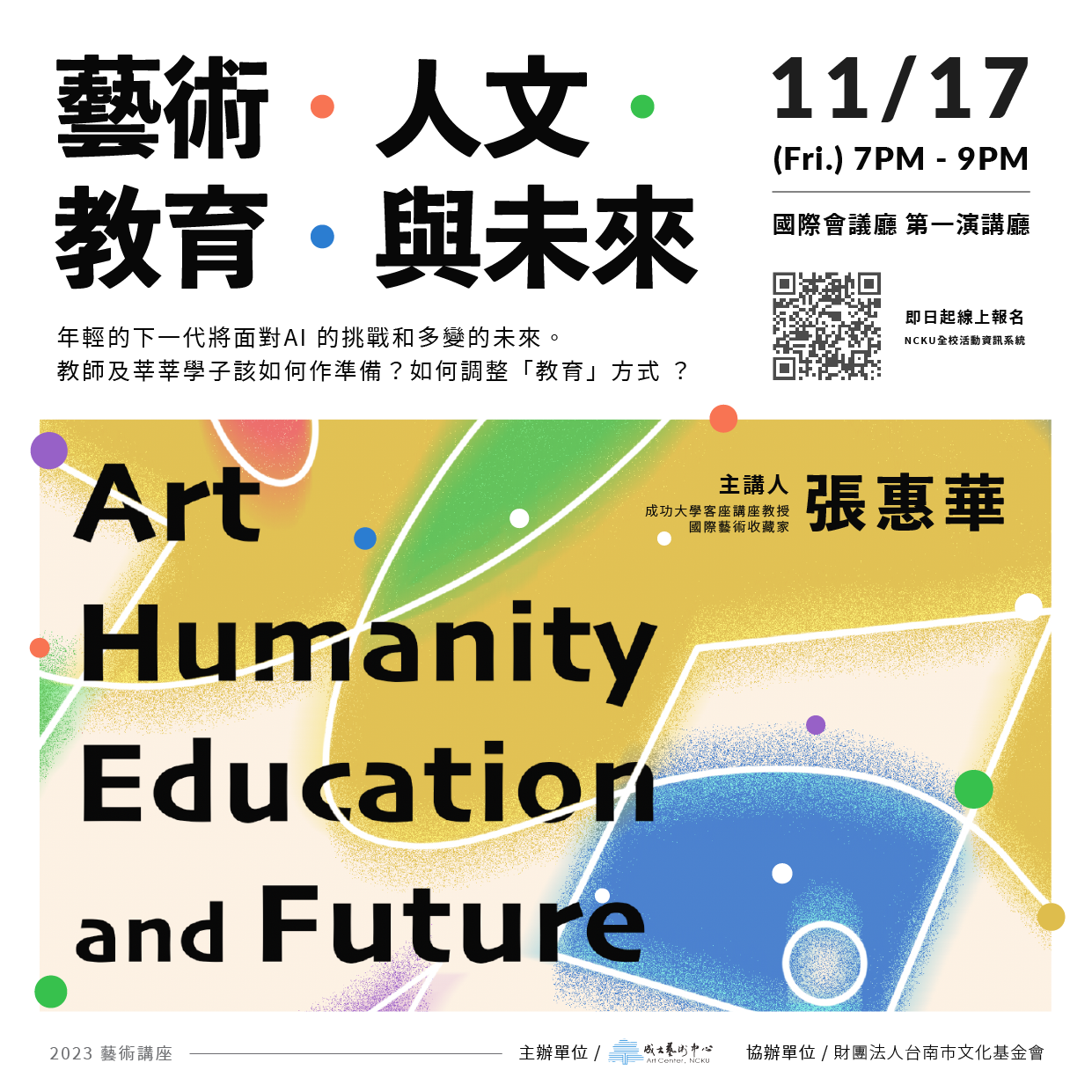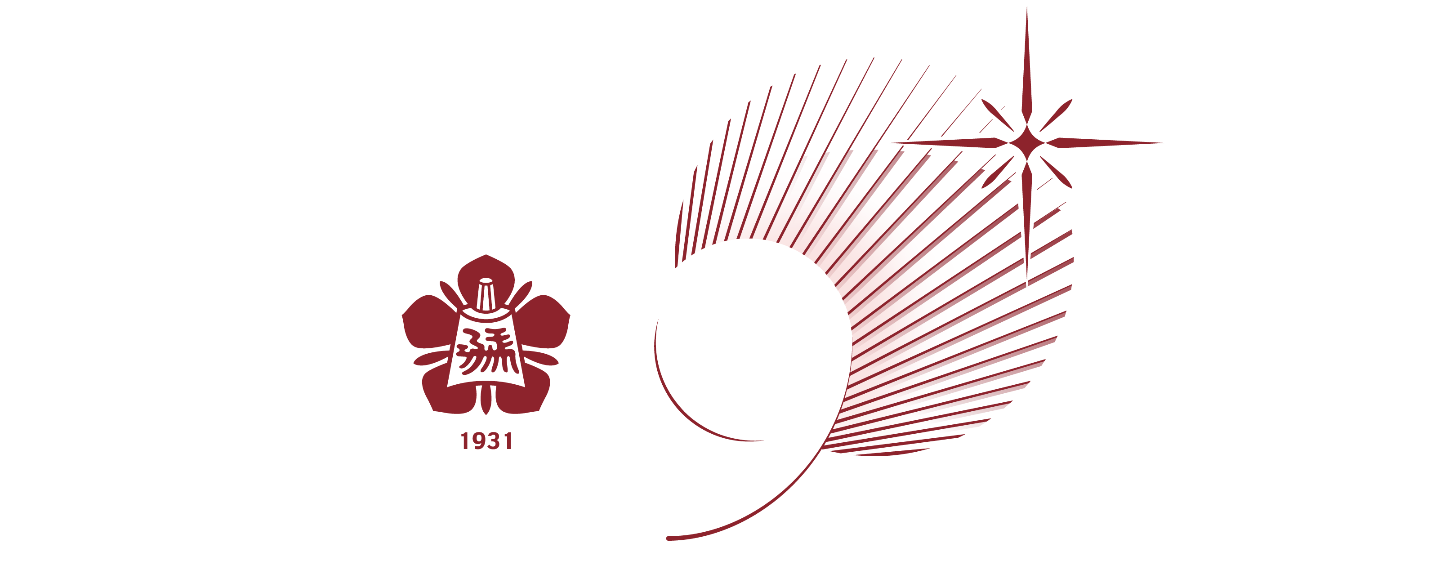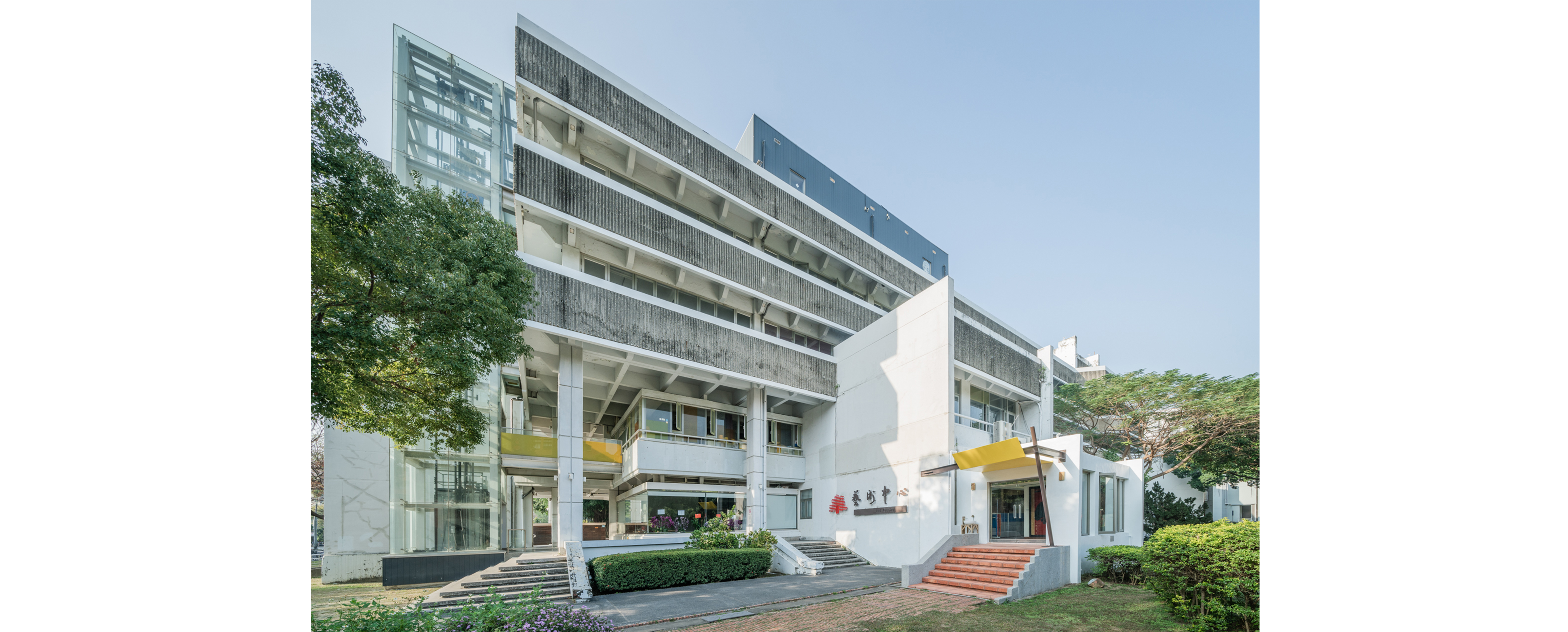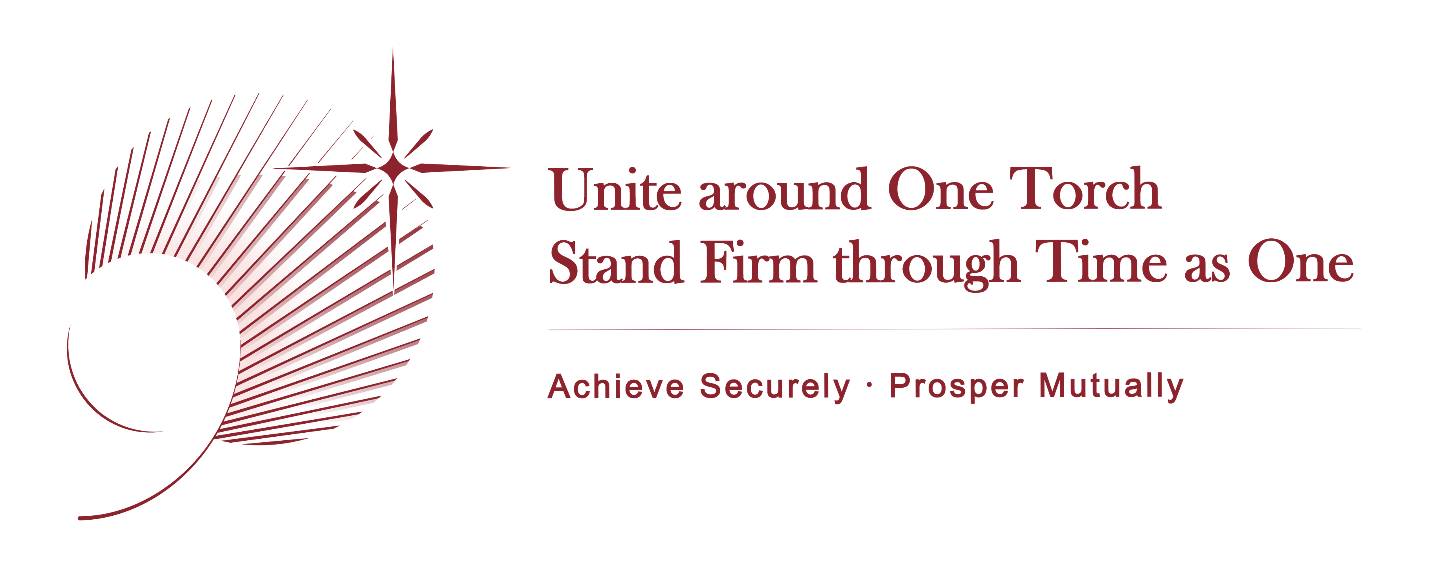Last Update
[Lecture] Art, Humanity, Education and Future / 2023.11.17 Fri. 19:00

Our next generation will be confronted with challenges of the Artificial Intelligence (AI) and the ever changing world. How should teachers and students make preparations? How should one adjust the ways of “Education”?
The aim of this lecture is hoping to inspire both students and teachers to “adjust” their teaching methods and learning attitudes: so that our next generation maybe better prepared to confront the needs and challenges of the future. In this lecture, “Art” is not referring to fine arts (such as painting) or music, but rather to “life” and “humanity”. In this lecture, philosophies (quotes) of many great people (such as former NCKU professor/physician Huang Kuan-Yen; noted scientist: Albert Einstein; renowned business enterpriser: Jack Ma) will be used to reflect the importance of humanity and liberal arts education for our younger generation. They believed that nourishing the “quality of humanity” should be the core value of education. The greatest challenge in the future for our next generation will be Artificial Intelligence. Regardless of professions, weather one becomes the “master” or “slave” of the future world of machines will depend on the “quality of humanity” in that person.
About the Speaker
Professor Louis W. Chang is a renowned authority in pathology, toxicology, and environmental health. In 1999, Professor Chang returned to Taiwan upon the job invitation by the National Health Research Institutes. After retiring in 2009, he assisted Cheng Kung University in its transformation and internationalization, leveraging his extensive domestic and international experience. Due to his family background and his personal passion for the arts, Professor Chang developed relationships with artists during his overseas travels and amassed a significant collection of Chinese and Western artworks. He has exhibited his personal collection numerous times in Taiwan, not only to share art but also to contribute to Taiwan's artistic culture and humanities education.





